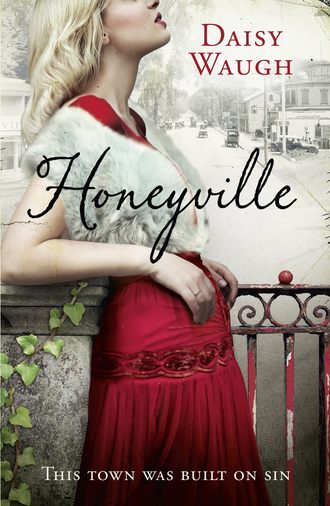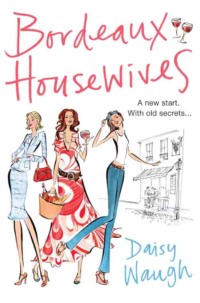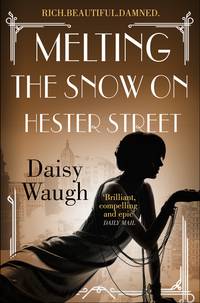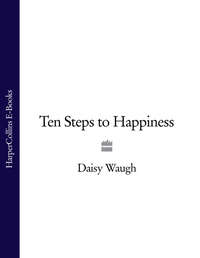
Полная версия
Honeyville
As I sit here twenty years on, at my little desk overlooking the warm Pacific Ocean, it seems the greatest of miracles to me that I ever did.
But life at Plum Street had its compensations. For a few years I used to think that William Paxton was one of them. He owned a gun store in town, and a few others upstate, and from the frequency of his visits to see me, I assumed they made him a good living. He’d been my regular client since his wife was sick and dying, and he was a decent man: quiet, gentle and generous.
He used to talk to me about his wife when she was dying and, after that, when his grief had eased, about all sorts of things. Sex and music and … well, sex and music, mostly, which were our interests in common. Maybe a little bit about real estate and automobiles, too. In any case, we became friends. I told him something about my life before I came to Trinidad – not all of it true, of course. But I told him how I came from England, the child of two Christian missionaries, one long dead, the other long since returned to England – which was true. And I told him how, before circumstances changed, I used to travel the Western circuit with a group of popular musicians and stand before a full hall and sing and dance, and that once, long ago, I was quite a music hall sensation. Which was also true, so far as I recall.
He bought me a little, old-fashioned harpsichord – heaven knows how he found it – which I kept in my rooms (Phoebe said a piano would have made too much noise), and we used to sing together; or, more often, I would sing for him. I told him, as I told Inez, about how one fine day, when I was too old for this game, I wanted to open a little singing school, perhaps in Denver. He pinched me and laughed.
‘Don’t be absurd, Dora,’ he said, and I know he meant it kindly. ‘You’ll never be too old for this game. You’ll be adorable until the day you die.’
He used to tell me how much he cared for me. And I believe he did. Occasionally, when we were alone together, he used to mutter tender things; and I am convinced that in the last few weeks and months, before Lippiatt’s death seemed to change everything in our little town, his feelings for me were stronger than ever. He said to me, a month or so before Lippiatt died, that he was ‘missing the comfort of a wife’, and on another occasion, around the same time, I remember he said: ‘I want to behave to you as a gentleman should.’
Inevitably, perhaps, I played the words over until they meant what I wanted them to mean: something vast and precious. And I began to believe that he loved me and that I loved him.
Well, he came to see me in the week after Lippiatt’s death. The streets were still cluttered with angry delegates, and the sheriff’s men roamed among them, waving their guns. William sought me out at Plum Street in the midst of it, earlier in the day than was usual. If he had been anyone else, I might have kept him waiting. But William was different, and when I came down to the ballroom I greeted him warmly – too warmly. Beady Phoebe swept across the room and shot me a warning look. It was against house rules to form strong attachments. ‘For your own protection,’ she used to tell us. ‘I don’t want my girls getting their hearts all smashed up. Bad for business.’
‘No heart left to smash,’ I used to say.
But afterwards, I knew I should have listened. Our heads were side by side on the pillow … and I wince to remember the affection I felt as I looked across at him. He glanced at me, sheepish as hell, gave a tug on his moustache, which he never did before and, for the maddest moment, because he looked so terribly ill at ease, I was certain he would speak the words. He said:
‘Dora, I’ve been meaning to mention …’
‘Mention what, William?’
‘Only the fact is …’
‘Yes, William?’
‘Because I want to do right by you, Dora. Never doubt it.’
‘I never would doubt it, William.’
‘I probably would have been sunk without you, after Matty died.’ He laughed. ‘I tell myself you kept me sane. I believe you did.’
‘Nonsense. You kept yourself sane. I just …’ I couldn’t think how to finish the sentence, so I left it there.
‘Fact is, Dora …’
I stroked his face and kissed his shoulder. His shyness melted my heart! ‘The fact is, what,darling man?’ I said.
‘Fact is, I’ve met a girl in Denver.’
My heart gave a double beat of misery.
‘She’s the sweetest girl.’
‘A sweet girl?’ I repeated. ‘You have met a sweet girl in Denver?’
‘I’m sure you’d take to her.’
‘Oh. I am sure …’
‘I mean to say, if you ever met her.’ Idly, awkwardly, he stretched an arm across the bed to caress me. ‘She is the most lovely girl I ever met,’ he said, and as he spoke he continued to tweak and squeeze and massage. ‘And the beauty of it is, she’s young enough for a whole brood of children!’ He laughed. ‘Unlike you, Dora! You and I are as old as the hills.’
I smiled. And smiled again. I wasn’t so damn old.
‘And the point of it is, Dora. Well, she has very kindly – crazily – but yes, Dora. She has agreed to be my wife.’
‘Oh!’
‘Yes. I’m kind of reeling from it myself, truth be told.’
‘It’s wonderful news.’
‘Yes. Yes indeed it is. Only the reason I mention it,’ he said.
‘The reason you mention it …’ I kept smiling, but my hand brushed his away. And I can picture his face now: an expression of slight hurt, mild surprise. He rested his arm by his side. ‘Since this nonsense with Lippiatt …’ he continued. ‘Well, it was the last straw. And I want you to believe, Dora, that my only regret in all of it will be leaving you. But I have decided to settle in Denver. It’s a better city. Don’t you think?’
He seemed to expect a reply. ‘I hardly know,’ I said.
‘There is so much vice here in Trinidad,’ he said, without a trace of irony. ‘I don’t want my wife and children living in such a place. Trinidad’s not the place it used to be.’
‘But I’m sure it won’t always be like this,’ I said, as if anything I said might have altered anything. ‘It’s only these past few weeks that things have gotten so bad. I’m sure as soon as the two sides can find agreement …’
He shook his head. ‘They found a company man on the rail tracks outside Forbes camp last night. Shot dead.’ Somehow his hand had worked its way back to my breast. ‘Retaliation killing,’ he muttered. ‘It won’t be the last, either.’
‘Well, but—’
‘But … but – nothing,’ he said. ‘I just want you to be happy for me. Can you manage that? Please?’
‘Of course I’m happy for you, William,’ I said. He looked relieved and grateful. As if he believed me! And then he climbed on top of me again, and he mumbled to the pillow above my head: ‘I bought a nice house in Denver. I wish you could see it … But I’ll see you right, baby. It’s a promise.’
6
Since Lippiatt’s death the mood in town had soured, there was no doubt. Each evening, miners travelled in from the outlying camps to listen to Union men preaching, to be harried and beaten by the Baldwin-Felts detectives, and to harry and beat them back. Both sides stomped the streets, drinking and fighting, their heavy boots kicking up the dust, as if the town belonged only to them. The Union had an anthem, and intermittently the gathering miners would break into song, filling the streets with their bellowing voices. It was a song we would all, in Trinidad, become more than familiar with in the months to come. I wake with it sometimes, even now, playing in my head.
We are fighting for our rights, boys,
We are fighting for our homes …
It was early afternoon, a day or two after William Paxton had told me he was moving to Denver, and I was still recovering – if not from the heartbreak of it, then from mortification at my self-delusion. In all the drama of the last attempt, I still hadn’t fetched my package from Carravalho’s Drugstore, and I was making my way there, ignoring the miners, the police and the Unionists, the baking heat and the wretched, constant thrum of promised, longed-for violence. It was the first time I had been along North Commercial since the murder, and I couldn’t help pausing at the spot where Lippiatt had fallen. In the dry summer, I noticed, faint stains of his blood still lingered. I was studying them, somewhat ghoulishly, when I heard Inez’s voice:
‘Oh! It’s you!’ she cried. ‘I can’t tell you how pleased I am to see you!’
I don’t think it occurred to her I would be anything but equally delighted to see her. And of course she was right. She looked young and fresh and full of hope, and so unlike the girls at Plum Street that I felt my heart lift. She said: ‘I wanted to come and find you days ago, but I didn’t know quite how … And now I’m on my way to the Union offices! What do you think about that?’ She sounded triumphant. ‘For heck’s sake, don’t tell Aunt Philippa though. She’ll murder me …’ She looked down at her feet, at the stain of blood. ‘Not literally, of course,’ she added. ‘I should think Lawrence O’Neill will be quite shocked to see me. Don’t you think so?’
I laughed. ‘He’ll have given up on you by now. I should think he’ll be astonished.’
‘I was lying low.’ She rolled her eyes. ‘Had to, Dora. But it’s only been a week. Ten days. He can’t have forgotten me already. And if he says he has, I’ll know he is lying. He said he’d take me out to the camps. I’m fairly certain he promised me. So. Here I am. What do you think?’
Again, I found myself laughing. ‘You’re a braver woman than I am,’ I said. ‘I wouldn’t get into an automobile with a Union man if my life depended on it. And certainly not if he was threatening to take me out to the towns … It’s dangerous,’ I felt compelled to add. ‘You realize, don’t you?’ Despite all she had witnessed, and on the very spot we were standing, I don’t believe she ever really understood it. ‘The company guards are no less trigger-happy than your Union friends.’
‘I know that!Actually, I was going to ask Lawrence if you might come with us,’ she said. ‘For the sake of …’ She stopped, frowned – and melted into that merry laugh of hers. ‘Well, I was going to say, “for respectability”, but it’s not quite what I mean, is it? It can’t be.’
‘Nothing respectable about me,’ I smiled. ‘Why don’t you visit Cokedale with your aunt instead?’ I said. ‘Leave Lawrence O’Neill and his Union well out of it. And me,’ I added. ‘It would be far safer. Didn’t you say she helped at the school?’
She shook her head. ‘Uncle Richard won’t allow it any more. Not now it’s finally gotten interesting.’
I wanted to tell her, it’s not a game. But she kept talking.
‘Anyhow, it would be more educational with Mr O’Neill. Don’t you think so? Plus, he’s absolutely right. I can’t be living here all this time, with bullets flying and people marching and everyone absolutely itching for a fight and still have not the slightest idea what they’re complaining about.’
‘Well I can tell you what they’re complaining about,’ I said. ‘If that’s what you want. You don’t have to go all the way out to the company towns to find out.’
‘But I want to go out there.’
It sounded plaintive. Standing on the spot where Lippiatt died, and almost – very nearly – stamping her little foot, her innocence and sweetness seemed less delightful suddenly; her open-minded curiosity not ad- mirable, but heartless and effete. ‘So you can look at the miners and their families like they’re zoo animals, I suppose,’ I said. ‘And risk getting shot. What would your aunt and uncle think?’
‘Why, I certainly don’t think they’re zoo animals,’ she replied. ‘And really what my aunt and uncle might think about it is hardly any concern …’
‘There’s plenty for the miners to complain about, I assure you.’
‘Oh, I’m sure there is,’ she said. She began to retreat. ‘Well … Dora … Miss …’ It occurred to me I had never told her my second name – my married name. I didn’t offer it then. ‘Miss … whatever your name is. Have a good day.’
She turned away from me, clumsy with hurt and surprise, and I felt ashamed. Ten minutes earlier, I’d have expected her to walk right past me with her nose in the air. Now here she was, greeting me like an old friend. She wanted to drive out to the towns and see for herself what the fight was about. It was more than I had done.
‘Inez!’ I moved to catch up with her again. ‘Wait!’ She didn’t hesitate. She reeled around at once, her face absolutely beaming. ‘Oh, and thank goodness for that!’ she said. She put an arm on my shoulder. ‘I was dreading going in that place on my own. Shall we go in together?’
‘Didn’t your aunt and uncle have something to say,’ I asked, as we fell into step, ‘about the company you were keeping the other night? You could hardly stand up when last I saw you. What did they make of it?’
‘Oh, them!’ she shrugged. ‘They’re out of town in any case. Thank goodness. So don’t let’s worry about them! Anyway, it wasn’t you they were worried about. In fact I don’t think Mr Browning quite registered you. It was the saloon that upset them, and the gentlemen company, and the fact that I was unable to walk in a straight line.’ She giggled. ‘They worry about me constantly. Either I haven’t found a husband or it’s something else. Poor darlings,’ she added. ‘I can’t do anything to please them. So I might as well please myself. Besides. If I’m clever about it, which I am, Dora, they really needn’t have the faintest idea – I mean, not about anything I ever get up to.’
We stepped into the Union office – two rooms on the ground floor with nothing much inside them: a handful of untidy desks, some metal chairs scattered about and, on the front counter, quantities of printed leaflets, several of them in languages I couldn’t recognize. In one corner, propped up for all to see, there were a couple of hunting guns.
Leaning over the counter in front of us was a tall young boy. Dressed in black felt hat and fresh, unsullied working clothes, he looked as if his thin bones were growing longer even as he slouched there. We waited in the empty room as he leafed slowly through his magazine, ignoring us. Finally, I said:
‘Excuse me. This is the office for the Union, isn’t it?’
The boy turned another page, pointed at the sign behind him, which confirmed the fact, and continued to read.
I glanced at Inez, torn between laughter and a strong urge to leave. She winked at me, gently shunted me out of the way. ‘It must be awfully interesting, whatever it is you’re reading,’ she said, leaning over the counter towards him, ‘if you can’t even look up from it to speak to us.’
He glanced at her without interest, and then back at his magazine. ‘Surely is,’ he replied, turning yet another page. ‘What can I do for you, ladies?’
‘Why!’ Inez cried. ‘But you’re reading The Masses, aren’t you?’ He glanced at her again. ‘You are!’ she said. ‘I recognize the picture. It’s all the way from New York. Young man, I find it hard to believe there’s more than one copy of that magazine in this little town. May I ask you where you came by it?’ She smiled at him, coquette that she was, and already he was melting. ‘I hope you didn’t take it from my home. Because the last I knew, the only copy of that magazine that ever made it this far west was lying in a little heap at my own bedside.’
I had never heard of The Masses – not then at least. It seemed extraordinary that Inez and this sullen Union boy should share the same reading material.
He said: ‘You read The Masses?’
‘Gosh, no,’ she waved it aside. ‘I look at the pictures. It’s all about the pictures, if you didn’t know. The pictures really are something, don’t you think? I look at the pictures, and then heck, I usually throw the darn thing away.’
He stared at her.
‘Can you help us please?’ she smiled at him again. ‘We’re looking for Mr Lawrence O’Neill. Do you know him?’
‘Sure I know him,’ he said. He tapped his magazine. ‘I bought this with me from Denver. In case you’re thinking. And there’s quite a line of people wanting to read it. So if you ain’t reading yours, maybe you could drop it by the office, would you? When you’re done looking at the pictures.’
‘Certainly not!’ she said. God knows quite why the idea so outraged her, but it did. ‘I’m going to pass it to my friend here, once I’m done with it. And then I shall make it available to everyone in the town by putting it on display over at the library … If they let me,’ she added doubtfully. ‘There’s not many in this town will appreciate the gesture … But if you Union men want to come over and read it at the library, you’ll be more than welcome … At least on Thursdays and Fridays. That’s when I’m working there. Maybe don’t bother otherwise. I don’t suppose Mrs Svensson’s going to be that happy to see you. She’s the one runs the place … Won’t you tell me kindly, have you happened to see Mr Lawrence O’Neill at all lately? Do you have any idea where I might find him?’
‘He’s out at Cokedale today,’ he said.
‘Do you know when he might be back?’
‘Nope.’
‘Today? Tomorrow?’
‘Maybe today.’
‘All right,’ she said slowly. ‘Well maybe … do you think you could tell him we came looking for him? It’s Miss Dubois and Miss …’ She stopped again. Looked at me and laughed. ‘For crying out loud, Dora, won’t you please tell me the rest of your name?’
‘Whitworth. Dora Whitworth.’
‘Whitworth!’ she gasped, clapping her hands together, rolling her eyes to emphasize her relief at being permitted to know it at last – and making me laugh aloud, once again. It was a miracle, I thought. I had left Plum Street feeling as gloomy as could be.
We left the Union offices with assurances from the boy – Cody – that he would pass our message to Lawrence O’Neill. Inez said: ‘Tell him we’ll be back at the same time tomorrow would you, Cody? With our travel suits on, ready to drive out to whichever town he chooses. You be sure to tell him, won’t you? I think Forbes. The camp at Forbes is closest, isn’t it?’
‘Cokedale.’
‘Well, Cokedale then.’
‘He’s out at Cokedale today. I told you. He’ll prob’ly go out to Forbes tomorrow.’
‘All right,’ she said again. ‘Well – you be sure to tell him. And tell your friends, if they want to read a copy of The Masses which hasn’t had your greasy thumbs all over it, there’ll be one waiting for them at the library from Thursday.’
He looked at his thumbs. ‘Awww,’ he said, close as damn to smiling. ‘They ain’t so greasy.’
*
It was mid-afternoon still, hot and sultry. I wasn’t in the mind to return to Plum Street – ever again, the way I was feeling. Inez and I were both at a loose end.
With anyone else, I might have suggested the saloon and a cooling glass of malt liquor. But with Inez I wasn’t certain. We could go to a tearoom, perhaps, or for a walk by the river. But whatever we did would involve our being seen out together, and that, I assumed, was an impossibility.
‘I know what we can do!’ she said, as if she had read my thoughts. ‘Let’s go to Jamieson’s Department Store and look at the hats! Shall we? We’ll need hats, for the Forbes visit. Serious hats. Black felt hats. Do you suppose they’ll sell any?’
‘I doubt it,’ I laughed. ‘And if they do, you’re welcome to them.’
We fell into step together, although a casual observer might not have realized it. We were careful to leave a space between us on the sidewalk and, as we chatted, we tended to look at our feet.
‘I never thought my darling brother’s silly magazines might come in handy one day,’ she said. ‘You’ve no idea the magazines he sends me. Because he’s convinced I don’t put enough fresh ideas into my head. He says I have a small-town mind and he wants to expand it. He may be right about that. I can’t wait to write him about Cokedale or wherever we go tomorrow.’ She laughed. ‘He won’t believe it!’
‘I’m not sure I believe it yet,’ I said. ‘It’s about the last place on earth I want to go.’
‘He sends me the most ridiculous literature through the post. I haven’t the heart to tell him but half of it – I mean most of it – goes straight into the garbage. Only I must admit to liking The Masses very much. Because of the pictures. I have to hide it from my aunt, but it impressed the boy, didn’t it? Why, I think it even impressed you!’ She froze. ‘Oh God,’ she said, gazing up the busy sidewalk. ‘Oh dear – oh Dora – here comes Aunt Philippa. I thought she was in Walsenburg today. She said she was going to Walsenburg to see the doctor! She has a weak heart … Do you think she’s seen us?’
‘Which one is she?’ I asked.
Inez shook her head. It hardly mattered. ‘Hurry – why don’t you cross the road? I’ll get shot of her fast as I can and I’ll meet you at hats in ten minutes. All right?’
At the hats, a half-hour later, and full of apologies for keeping me waiting, she bought herself a most fetching capeline in pale grey silk, with two silk flowers at the brim. The clerk told Inez they had ordered it especially with her in mind.
‘Well, it’s perfect,’ she declared. ‘How do you do it? You seem to know what I like even before I know it for myself.’ The shop clerk glowed. We left the store, Inez several dollars lighter, with a new silk hat. ‘It’s not nearly serious enough … But no bother,’ she whispered. ‘I shall remove the flowers on the brim before tomorrow and it’ll be just right.’
She said she wanted to come back with me to my rooms. ‘Because then I shall know exactly where to find you when I need you.’
‘Or maybe I could come back with you,’ I teased her. ‘We could have tea à trois. You, me and your Aunt Philippa.’
She seemed to consider me. ‘You know,’ she said, without a flicker of humour, ‘when I saw you earlier, outside the drugstore where your friend was shot—’
‘I already told you, Inez, he was hardly a friend.’
‘Well, I saw your face before you saw me. And I’ll tell you what I thought. You’ll have to forgive me … I thought I had never seen anyone sadder-looking in all my life.’
‘Pardon me?’ I said, hoping I hadn’t heard her quite right.
‘It hurt my heart, just looking at you.’
‘Well – I’m sorry to hear that … Fact is,’ I added defensively, ‘I just had some bad news.’
She wasn’t listening. ‘There’s me, fussing about never finding a sweetheart or a husband or whatnot – and there were you with a face more tragic than Helen of Troy.’
‘I told you. I just had some bad news.’
‘And I don’t even care what you say about a fallen woman is better than a wife. I thought about it over and over after you said it. And heck, how do I know? I’m not even either. And maybe it is better and maybe it isn’t better. But I know from your face you’re not happy. And I have an idea. About the singing school. Remember? That’s what I wanted to talk to you about. So that’s why I decided we should go back to your rooms – you have a sitting room or something, don’t you? Where we can talk, without others listening in?’
‘Of course I do.’
‘Well then. Let’s go there – I have a perfect plan for you. A perfect plan – and it’s going to save you.’
‘I don’t need saving, Inez.’
‘Yes, you do.’
‘No. I don’t.’
‘Oh! Don’t be absurd,’ she said, taking my arm. ‘We all need saving!’ and she spun me towards Plum Street. ‘Especially you.’
7
The tall thin boy at the counter looked even taller and bonier when we returned the following day. He was leaning on the same counter, reading – I’m fairly sure of it – the exact same article. Lawrence O’Neill was at a desk behind him, stretched out on a metal chair, large and brawny, dwarfing the furniture around him. He had a rifle cocked between his thighs, which he was in the process of attending to.
‘Here they are, Mr O’Neill!’ the boy – Cody – declared. ‘The ladies I told you about. I told you they’d come.’








